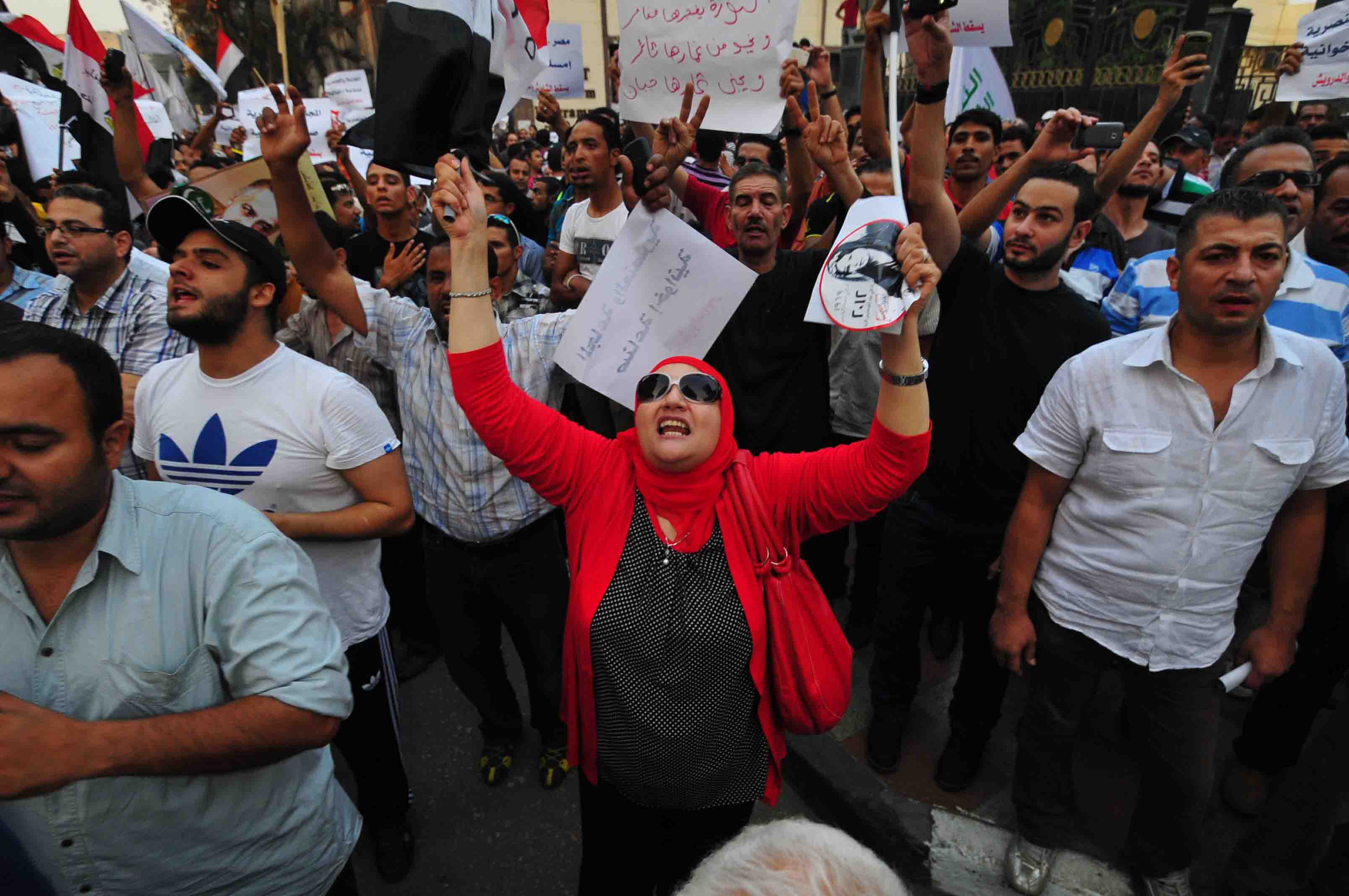CAIRO: The March 9 Movement, which advocates academic freedom, criticized a recent decision requiring security permits prior to organizing activities and receiving visitors on university campuses.
Earlier last week, Cairo University’s Secretary General Mo’taz Abu Shady, in an official statement, called on deans of all faculties and institutes to inform the General Security Administration before holding any conferences, seminars, celebrations, meetings, training courses, public discussions of theses or any other occasions that require the presence of visitors.
“We rejected the statement altogether,” said Sayed El-Bahrawy, professor of Arabic literature and March 9 Movement member. The group of Cairo University professors has been pressing for university autonomy and academic freedom.
“Professors and students have the right to hold any events and activities freely,” El-Bahrawy told Daily News Egypt.
A source at the university secretary general’s office told DNE on condition of anonymity that several violations were recently committed on campus when outsiders were allowed to enter university grounds without permission.
“There is nothing new about the decision, which does not prevent holding any events or activities,” the source said. “Rather, it requests that faculties inform the ‘civilian’ on-campus security of any visitors at least 48 hours in advance … to acquire the necessary permits,” he added.
Laila Soueif, another March 9 member, considered the decision as “total nonsense.”
“Violations can be committed by those authorized to enter the campus in the first place,” Souief told Daily News Egypt.
According to Souief over 200,000 people are authorized to pass through the university gates, including students, teaching staff and employees.
“If a customer swears inside a supermarket, does this mean no more people will be allowed to step inside the place?” she argued.
El-Bahrawy described the statement as being rather “vague.”
“It referred to outside visitors, which in Arabic also entails visitors from abroad, foreigners,” he argued.
Souief argued that the secretary general “has no right to address deans.”
“Such procedure has to be undertaken through the university president,” she said, adding that Abu Shady had taken similar measures before the January 25 Revolution, much to the dismay of professors.
The decision stipulates that an official letter be submitted to university security with the names, nationalities and details about any visitors, which indicates that the teaching staff cannot receive visitors in their offices.
“What kind of a public organization dictates whose employees cannot receive visitors,” Souif argued.
“The university is [a public entity] that should be open to all Egyptian citizens,” she added.
Before the revolution, students frequently complained of police interference in student union elections, excluding candidates who belong to political groups from electoral lists. The disbanded State Security used to interfere in the appointment of teaching assistants based on their security files.
On Oct. 23, 2010, the Administrative Court upheld a previous ruling that ended police presence on the Cairo University campus and ordered that they be replaced with civilian guards.
About two years earlier, the March 9 Movement filed a lawsuit before the Administrative Court calling for an end to police interference in university affairs. The interior ministry procrastinated for the following months in carrying out the verdict, which stirred outrage among students and human rights advocates.
According to El-Bahrawy, the verdict was only enforced after the revolution succeeded.
“Yet the judgment was manipulated as many policemen remained on campus after they changed their outfit with the new civilian uniform,” El-Bahrawy said.
“The problem was not just the on campus security. We believe that the real change will happen if we make sure that the State Security authority is over,” he added.
However, Souief believed that the police dominance over the university had relatively diminished. “I’m more concerned now about the army interference in campus affairs,” she said.
On March 23, military police forcibly dispersed a protest by mass communication students using cattle prods after failing to convince them to end their sit-in. Many students were hospitalized.
Students were demanding the ouster of the dean of the mass communication department whom they accused of being part of the old regime and a member of the policies committee of former president Hosni Mubarak’s National Democratic Party (NDP).
The Supreme Council of the Armed Forces has been ruling Egypt since Mubarak stepped down on Feb. 11 following an 18-day nationwide uprising.


